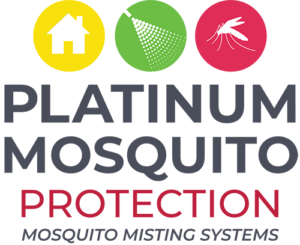
Diseases carried by mosquitos could be diminished by creating a vaccine for the insect’s saliva
As if you didn’t already have enough reasons to dislike mosquitos. Scientists recently reported that mosquito saliva makes changes to our immune systems. They’ve shown that these changes last at least a week in laboratory mice after they’ve been bitten.
Why is this bad news for us? It might help to explain how saliva from mosquitos can make us more vulnerable to diseases like dengue fever and malaria. But maybe there’s a silver lining to this saliva scenario. Instead of developing a multitude of vaccines against the viruses, bacteria, and parasites that use mosquitos as a way to spread, scientists could create just one vaccine against mosquito saliva itself.
The mosquito saliva backstory
It’s not easy for a female mosquito to get at our blood. Her mouth – which is called a proboscis – is a sophisticated system of six thin, needle-like parts called stylets. Each pierces the skin, finds blood vessels and transports our blood back to the mosquito.
To get it out of us and into her, she injects us with substances that dilate the blood vessels and prevent the blood from clotting. And, it turns out, these substances do more than cause the itchy red welts we call mosquito bites.
Scientists solve a mosquito mystery
Researchers have observed for some time now that laboratory mice tend to develop more severe symptoms of mosquito-borne diseases like dengue fever when the virus being passed to the host via a mosquito rather simply injected with a needle.
It turns out that the itchy red welts are acting like a Trojan horse. Our body is tricked into having an allergic reaction by the mosquito saliva when it really should be having an antiviral reaction from the virus that’s been injected. The immune system isn’t alerted about the virus in the mosquito’s saliva.
What are summoned instead by the saliva are immune cells that are susceptible to the virus. Your body ends up helping the virus establish infection because your immune system is sending cells the virus is able to infect.
Scientists pieced this mystery together by exposing mice to mosquito saliva without the dengue virus. They were able to document the summoning of susceptible cells, including one from the bone marrow. This transport of immune cells was still detected seven days after the mosquito bite. The bone marrow piece was particularly troubling to discover because it means that the bone marrow is being primed as a reservoir for the viruses carried in the mosquito saliva.
The takeaway? Mosquito saliva modifies our entire immune system, setting it up for pathogens to replicate easier so they can cause more disease. So, even if you’re bitten by mosquitos who aren’t carrying any pathogens, they’re compromising your immune system. That mosquito bite red welt is really just a red herring.
Forget the viruses, stop the saliva
Scientists are now beginning to realize that the threat to humans by the diseases carried by mosquitoes could be diminished by creating a vaccine for mosquito saliva. First, they’ll have to determine which of the proteins in mosquito saliva are responsible for the altered behavior in our immune system’s cells.
They’ll need to figure out a way to prevent mosquito saliva from convincing our own immune system cells to call off the attack on the pathogens being introduced by the bite. If they’re successful, it could end up developing a sort-of universal vaccine. Because this vaccine short-circuits the mosquito saliva, it would theoretically render harmless most of the pathogens carried by it.
It may sound far-fetched, but a successful anti-saliva vaccine is nothing to spit at. Diseases carried by mosquitoes kill an estimated 1,700 people a day.
And until there’s a way to vaccinate yourself against mosquito saliva, your best bet is to cover up, apply (and reapply) bug spray, or invest in a highly effective automatic misting system that can keep you safe and help you reclaim your backyard.
